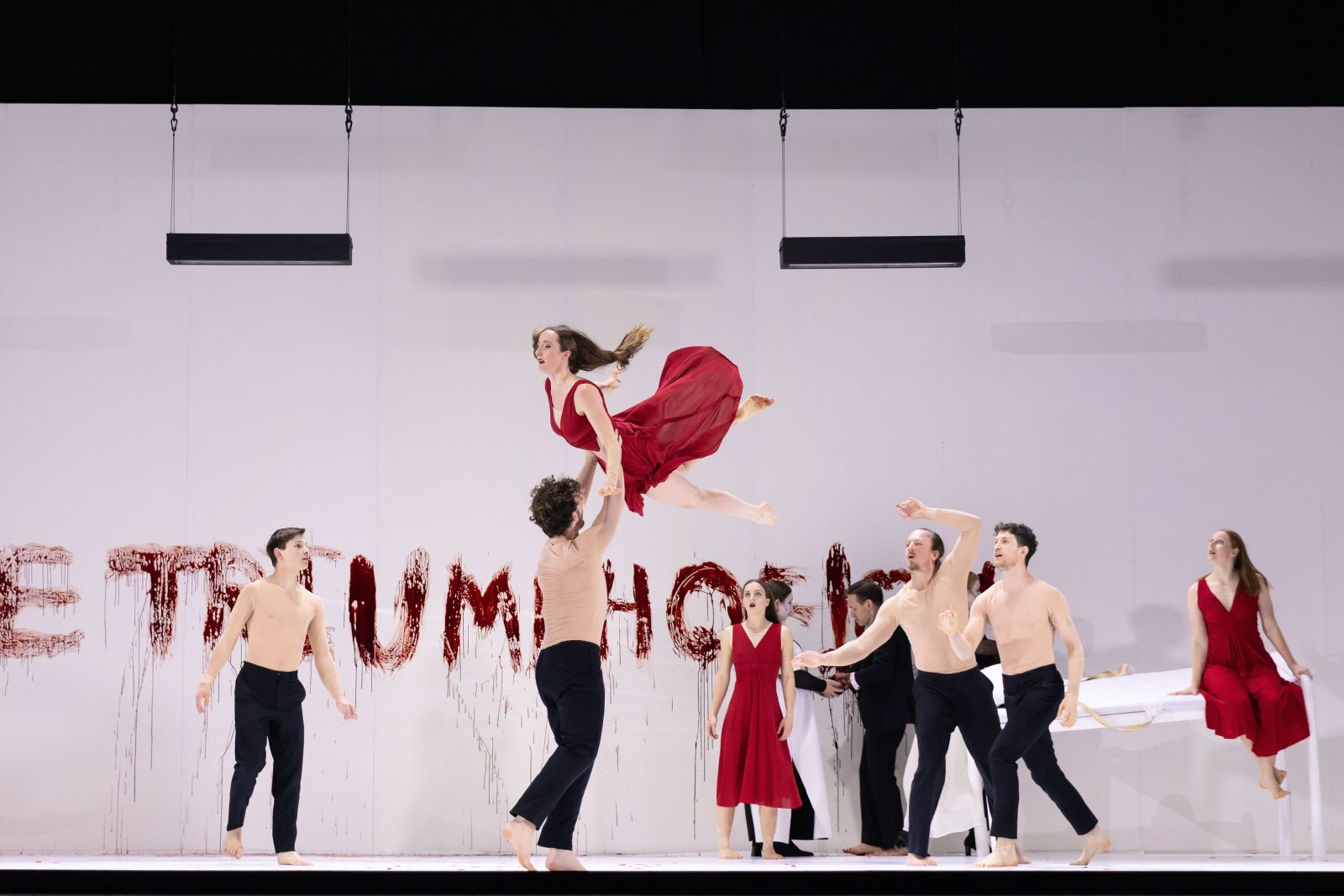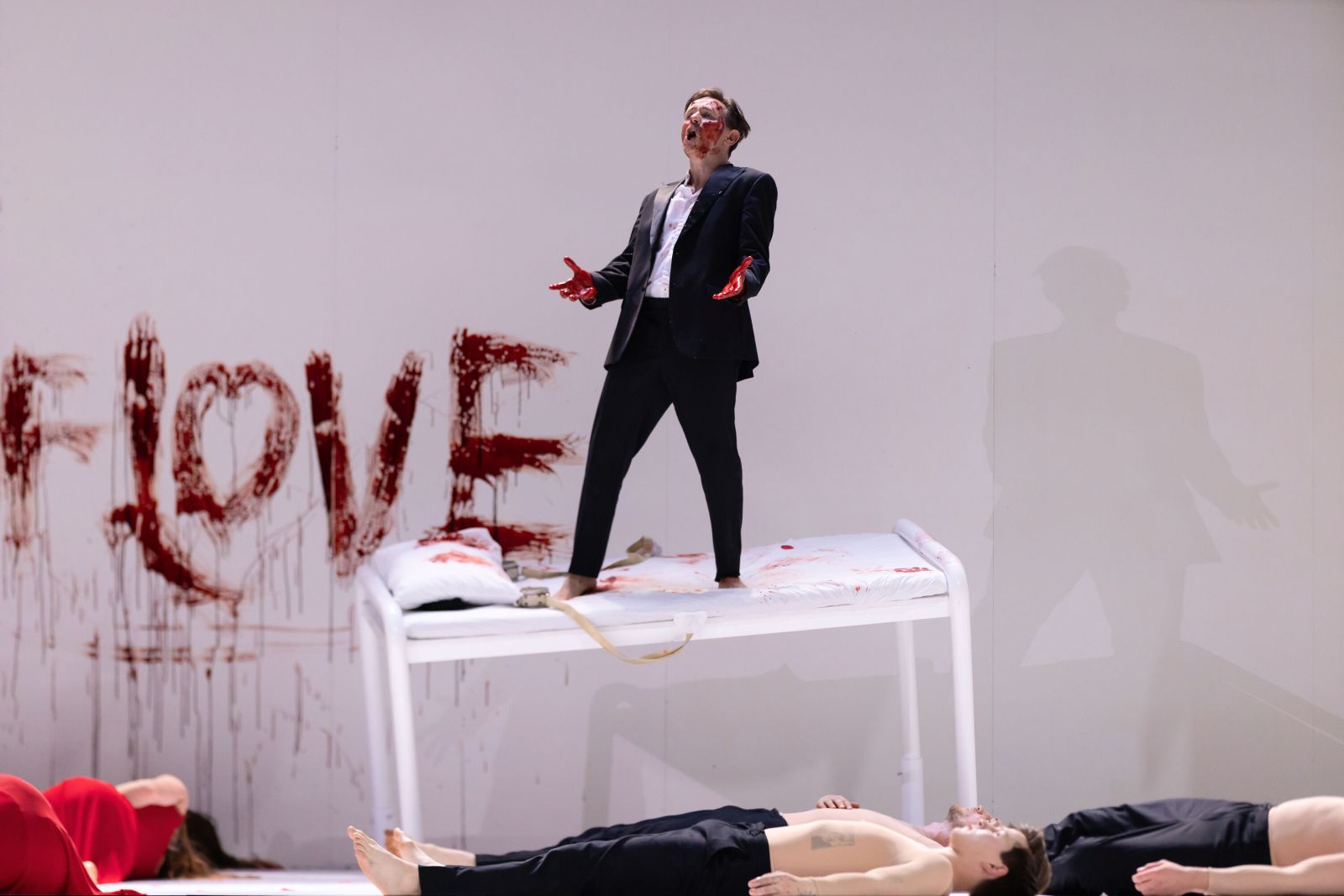Orpheus And Eurydice circus and opera reviews: Two takes, one classic tale
A first for the Edinburgh International Festival, as the finest opera and circus companies merge with Gluck’s tragic tale of doomed love. Our expert critics view things from their different perspectives

THE CIRCUS (★★★★★)
The thoughts and dreams inside a character’s head, no matter how surreal and spiralling, can be brought to life in flesh and blood when you have a cast of acrobats who can fly, leap, turn into mountains and balance upside down like open petals. This production of Gluck’s 18th-century Orpheus And Eurydice, from Opera Queensland and Circa, uses the full power of circus to lean into both the heightened emotion of opera and the shape-shifting traditions of Greek drama.
The opening image is startling; an acrobat, in a dress the colour of freshly spilled blood, lolls and spirals on a high loop of aerial strap. Iestyn Davies’ Orpheus wakes in a stark, clinical unit, strapped down, clad in a dishevelled suit, unsure if he has killed his wife Eurydice (Samantha Clarke). Backed by a chorus of acrobats (as well as Scottish Opera’s chorus of singers) we travel with him on a kaleidoscopic journey as he descends into Hades in an attempt to bring back Eurydice. The Circa cast clamber and flip across Orpheus like crawling intrusive thoughts, make eerie prophesies of his fateful pledge not to turn and look at Eurydice, and later form topsy turvy hall of mirrors echoes of the pair’s struggle to leave the underworld.
The circus is at its most eloquent when it uses the acrobats’ extraordinary abilities with dramatic purpose. A falling three-tall human tower crashes down like thoughts of despair, hellish sprites whirl on aerial straps in Hades, a ring of acrobats circling Eurydice in Elysium unfolds in backbends like a strange flower. There are a couple of moments when the circus feels tricksy, an odd flip or held balance adding nothing to the drama. But the virtuosic chaos of the ending is darkly sublime. (Lucy Ribchester)

THE OPERA (★★★★☆)
As an eight-year-old treble with the Choir Of St John’s College, Cambridge, it’s 100% unlikely that countertenor Iestyn Davies could have imagined his future career where he’d perform baroque opera while perched precariously on the shoulders of Australian acrobats. This is only one of many demands placed upon this supremely skilled singer and actor in the collaboration of Opera Queensland and Circa along with the Scottish Chamber Orchestra and Scottish Opera; that moment was but one of many where Davies as Orpheus drove Gluck’s narrative forward.
In some ways, the well-known Greek myth is straightforward and simple, which can possibly be seen as a reason to ramp up on theatrical production. For added wow factor, bring on the circus artists of Circa. The risk is, of course, what happens to the music, which is ultimately where the story is told, the emotions felt and the drama happens? Too often, the constant movement was distracting. The full-voiced Scottish Opera Chorus was consigned to line formation in anonymous black, although clever use was made of Eurydice as a character with the role itself tellingly sung by Samantha Clarke. Only as Orpheus lamented life without his wife (‘Che farò senza Euridice’) did the stage still. In the pit, the Scottish Chamber Orchestra were in usual brilliant form. (Carol Main)
Orpheus And Eurydice, Edinburgh Playhouse, 15 August, 8pm, 16 August, 3pm.